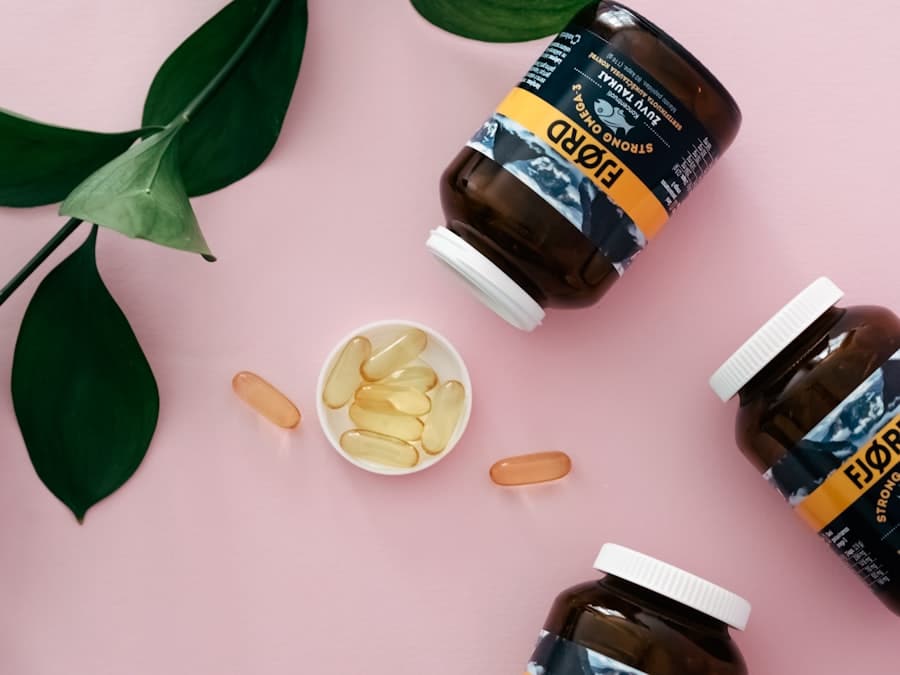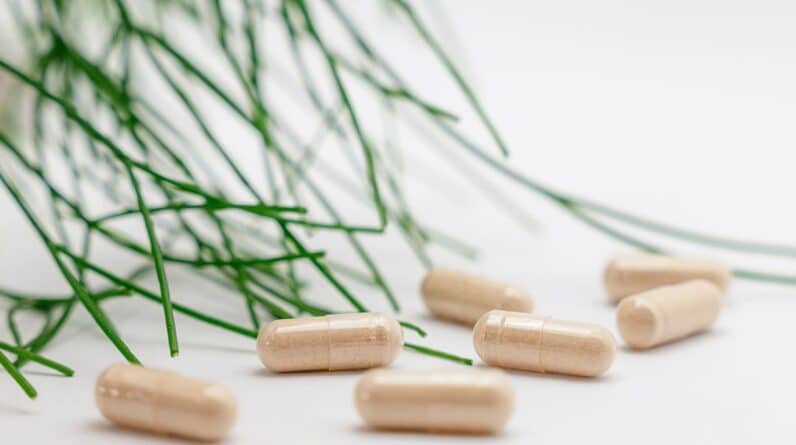Glutathione is a powerful antioxidant that plays a crucial role in maintaining your body’s overall health. Composed of three amino acids—cysteine, glutamine, and glycine—this tripeptide is found in every cell of your body, particularly in the liver, where it performs a variety of essential functions. You might think of glutathione as your body’s internal defense system, working tirelessly to protect your cells from oxidative stress and damage caused by free radicals.
Its unique structure allows it to neutralize harmful compounds, making it an indispensable player in your body’s biochemical processes. The way glutathione works is fascinating. It acts as a scavenger, seeking out and binding to free radicals and toxins, which are byproducts of cellular metabolism and environmental exposure.
Once bound, these harmful substances are rendered harmless and can be excreted from your body. This detoxification process is vital for maintaining cellular integrity and function. Moreover, glutathione also helps regenerate other antioxidants, such as vitamins C and E, enhancing their effectiveness.
By understanding how glutathione operates at a cellular level, you can appreciate its significance in promoting health and preventing disease.
Key Takeaways
- Glutathione is a powerful antioxidant produced in the body that plays a crucial role in detoxification and immune function.
- Glutathione helps to neutralize free radicals, support the immune system, and protect cells from damage.
- Low levels of glutathione have been linked to aging and age-related diseases, making it an important factor in maintaining overall health.
- Glutathione is essential for liver health, as it helps to detoxify harmful substances and support liver function.
- Increasing glutathione levels naturally can be achieved through a healthy diet, regular exercise, and adequate sleep, while glutathione supplements may have benefits but also carry potential risks.
The Role of Glutathione in Detoxification and Antioxidant Defense
Detoxification is one of the primary roles of glutathione, and it is essential for your body’s ability to eliminate harmful substances. Your liver relies heavily on glutathione to process and remove toxins, drugs, and metabolic waste. When you consume food or medications, your body breaks them down into various compounds, some of which can be toxic.
Glutathione binds to these harmful substances, transforming them into less harmful forms that can be easily excreted through urine or bile. This detoxification process not only protects your cells but also supports overall liver function. In addition to its detoxifying properties, glutathione serves as a formidable antioxidant defense mechanism.
Oxidative stress occurs when there is an imbalance between free radicals and antioxidants in your body, leading to cellular damage. Glutathione neutralizes free radicals by donating electrons, effectively stabilizing these reactive molecules. This action helps prevent oxidative damage to DNA, proteins, and lipids, which can contribute to various diseases.
By bolstering your antioxidant defenses, glutathione plays a pivotal role in maintaining cellular health and reducing the risk of chronic conditions.
The Link Between Glutathione and Immune Function

Your immune system relies on a delicate balance of various components to function optimally, and glutathione is a key player in this intricate network. It supports immune function by enhancing the activity of immune cells, such as lymphocytes and macrophages. These cells are responsible for identifying and eliminating pathogens like bacteria and viruses.
When glutathione levels are adequate, your immune cells can respond more effectively to infections and other threats. Conversely, low levels of glutathione can impair immune responses, making you more susceptible to illness. Moreover, glutathione helps regulate inflammation within your body.
Chronic inflammation is linked to numerous health issues, including autoimmune diseases and allergies. By modulating the inflammatory response, glutathione can help maintain a balanced immune system. This balance is crucial for preventing overreactions that can lead to tissue damage while ensuring that your body can effectively combat infections.
Understanding the connection between glutathione and immune function underscores the importance of maintaining optimal levels for overall health.
Glutathione and its Impact on Aging and Age-Related Diseases
As you age, your body undergoes various changes that can affect your health and well-being. One significant change is the decline in glutathione levels, which has been linked to the aging process itself. Reduced glutathione levels can lead to increased oxidative stress and inflammation, both of which are contributing factors to age-related diseases such as cardiovascular disease, neurodegenerative disorders, and certain cancers.
By understanding this connection, you can take proactive steps to support your glutathione levels as you age. Research suggests that maintaining adequate levels of glutathione may help mitigate some effects of aging. For instance, studies have shown that individuals with higher glutathione levels tend to have better cognitive function and a lower risk of developing neurodegenerative diseases like Alzheimer’s.
Additionally, glutathione’s role in detoxification may help protect against the accumulation of toxins that can contribute to age-related decline. By prioritizing strategies to boost your glutathione levels, you may enhance your resilience against the challenges of aging.
Glutathione and its Potential in Supporting Liver Health
Your liver is a vital organ responsible for numerous functions, including detoxification, metabolism, and nutrient storage. Glutathione plays an essential role in supporting liver health by facilitating the detoxification process. When your liver is exposed to toxins—whether from environmental sources or dietary choices—glutathione helps neutralize these harmful substances, allowing for their safe elimination from your body.
This protective mechanism is particularly important given the liver’s central role in processing medications and alcohol. Moreover, research indicates that maintaining optimal glutathione levels may help prevent liver diseases such as fatty liver disease and hepatitis. Low levels of glutathione have been associated with increased oxidative stress in liver cells, leading to inflammation and damage.
By ensuring that your body has sufficient glutathione, you may enhance your liver’s ability to cope with stressors and reduce the risk of developing liver-related conditions. Supporting liver health through glutathione can be a proactive approach to maintaining overall well-being.
Glutathione and its Role in Managing Chronic Conditions

Chronic conditions such as diabetes, heart disease, and autoimmune disorders often involve oxidative stress and inflammation as underlying factors. Glutathione’s multifaceted role in combating these issues makes it a valuable ally in managing chronic health problems. For instance, individuals with diabetes often experience elevated oxidative stress due to insulin resistance.
By boosting glutathione levels, you may help mitigate some of this oxidative damage and improve insulin sensitivity. In autoimmune conditions, where the immune system mistakenly attacks healthy tissues, maintaining balanced immune function is crucial. Glutathione’s ability to modulate inflammation can be beneficial in managing symptoms associated with autoimmune diseases.
By supporting your body’s natural defenses while reducing excessive inflammation, glutathione may help improve quality of life for those living with chronic conditions. Understanding how glutathione interacts with these health issues empowers you to take charge of your well-being.
How to Increase Glutathione Levels Naturally
If you’re looking to boost your glutathione levels naturally, there are several lifestyle changes you can implement. One effective strategy is to incorporate foods rich in sulfur-containing amino acids into your diet. Foods such as garlic, onions, cruciferous vegetables (like broccoli and Brussels sprouts), and legumes are excellent sources that can help enhance your body’s production of glutathione.
Additionally, consuming foods high in vitamin C—such as citrus fruits—can support the regeneration of glutathione after it has neutralized free radicals. Regular physical activity also plays a significant role in increasing glutathione levels. Exercise has been shown to stimulate the production of this vital antioxidant while improving overall health markers such as cardiovascular fitness and metabolic function.
Furthermore, managing stress through practices like meditation or yoga can positively impact your body’s antioxidant status by reducing oxidative stress levels. By adopting these natural strategies, you can effectively support your body’s glutathione production.
The Benefits and Risks of Glutathione Supplements
While increasing glutathione levels through diet and lifestyle changes is beneficial, many people consider supplements as an alternative option for boosting their antioxidant status. Glutathione supplements come in various forms—such as capsules or powders—and are marketed for their potential health benefits, including improved detoxification and enhanced immune function. Some studies suggest that oral supplementation may help raise blood levels of glutathione; however, the effectiveness can vary based on individual absorption rates.
Despite the potential benefits of supplementation, it’s essential to approach this option with caution. Some individuals may experience side effects from taking glutathione supplements, including gastrointestinal discomfort or allergic reactions. Additionally, the long-term effects of high-dose supplementation are not well understood.
Consulting with a healthcare professional before starting any supplement regimen is crucial to ensure safety and appropriateness for your specific health needs. By weighing the benefits against potential risks, you can make informed decisions about how best to support your body’s glutathione levels. In conclusion, understanding the multifaceted roles of glutathione in your body highlights its importance for overall health and well-being.
From detoxification to immune support and aging management, maintaining optimal levels of this powerful antioxidant can significantly impact your quality of life. Whether through dietary choices or lifestyle modifications—or even supplements if deemed appropriate—prioritizing glutathione can empower you on your journey toward better health.
If you are interested in learning more about the myths surrounding supplements, check out the article Debunking Common Myths About Supplements. This article provides valuable information on separating fact from fiction when it comes to the effectiveness of various supplements. Understanding the role of antioxidants in our health is also crucial, so be sure to read Antioxidants for more insights. Additionally, if you want to decode the labels and ingredient lists on your supplements, the article Understanding Supplement Labels and Ingredient Lists is a must-read.
FAQs
What is glutathione?
Glutathione is a powerful antioxidant produced in the body that plays a crucial role in maintaining overall health and well-being. It is made up of three amino acids: cysteine, glutamine, and glycine.
What are the health benefits of glutathione supplements?
Glutathione supplements are believed to support the immune system, promote detoxification, and protect cells from oxidative stress. They may also help improve skin health and reduce the risk of certain chronic diseases.
How do glutathione supplements work in the body?
Glutathione supplements work by increasing the levels of glutathione in the body, which in turn helps to neutralize free radicals, support the immune system, and aid in detoxification processes.
Are there any potential side effects of taking glutathione supplements?
While glutathione supplements are generally considered safe for most people, some individuals may experience side effects such as stomach upset, allergic reactions, or worsening of asthma symptoms. It is important to consult with a healthcare professional before starting any new supplement regimen.
Who can benefit from taking glutathione supplements?
Individuals with certain health conditions, such as liver disease, Parkinson’s disease, or HIV/AIDS, may benefit from taking glutathione supplements. Additionally, those looking to support their immune system, improve skin health, or promote detoxification may also find glutathione supplements beneficial.
How should glutathione supplements be taken?
Glutathione supplements are available in various forms, including oral capsules, sublingual tablets, and intravenous injections. The appropriate dosage and form of glutathione supplementation should be determined in consultation with a healthcare professional.






